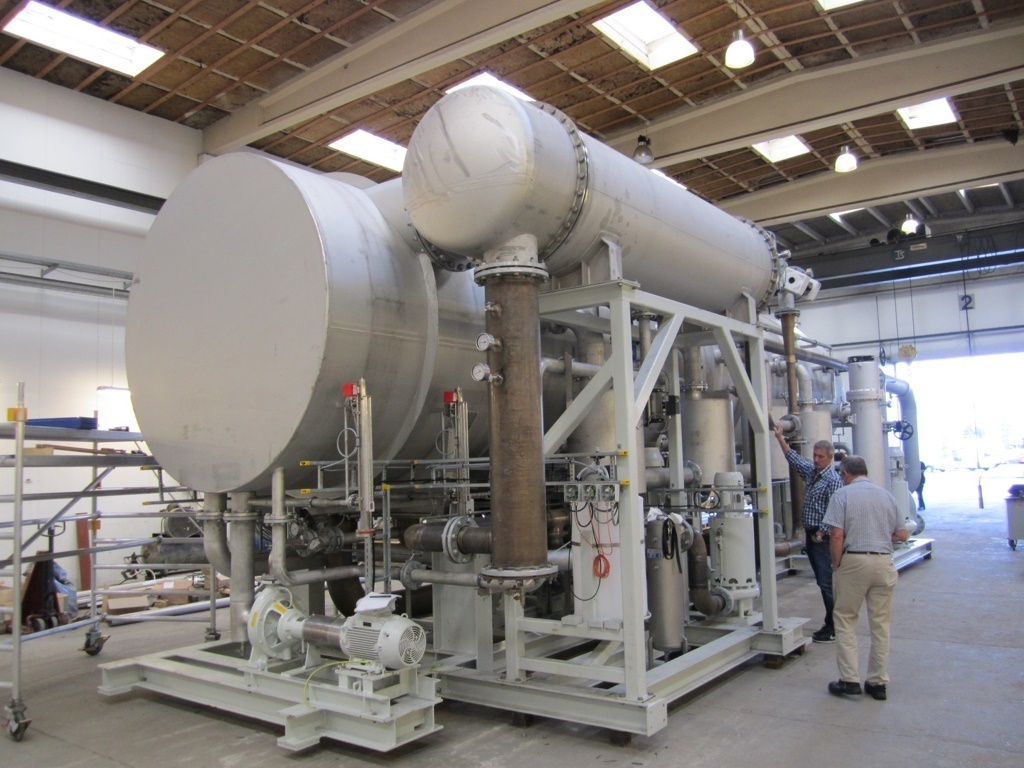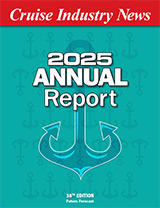Alfa Laval offers multi-effect plate (MEP) evaporator systems for cruise ships. The company describes the evaporator as high-efficiency, robust and stable, and that it does not matter if a cruise ship is sailing in brackish water or in seawater with very high salinity. Lower seawater temperature results in lower electrical power consumption down to between 1 and 1.5 kilowatt hours per cubic meter of potable water.
“We have updated our control concept of the MEP multi-effect plate evaporators and at the same time developed solutions to save on the electric consumption,” Alex Jonsson, global business manager, told Cruise Industry News. “The new controls include an energy management feature that will tell the operator the status of the evaporators, the consumption of electric power and thermal heat from the hot water and exhaust gas boilers. At a recent sea trial in Italy the MEP-4-800 only consumed 1.7 kilowatt hour per cubic meter of fresh water during commissioning, thanks in large part to our use of variable speed drives and the more efficient design of the system.”
And MEP does not require pre-heating when the seawater temperature drops below 25 degrees Celsius.
Johnson noted that while oceans and coastal waters sometimes contain more than just seawater, MEP normally only requires cleaning using specially developed non-toxic cleaning agents once or twice a year, which is about 10 times less than RO systems, he said.
His opinion is that MEP is the most sustainable solution that secures fresh water production in all seawater qualities.
Jonsson’s recommendation is that cruise ships should not rely on only one desalination technology and that when waste heat is available, MEP is the most cost-effective technology.




